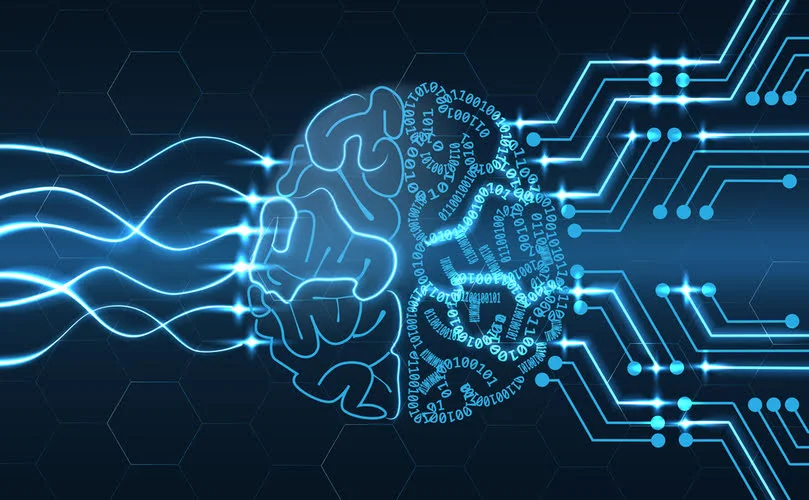Building upon the foundational exploration in Does Fate Shape Outcomes in Ancient and Modern Times?, we delve deeper into the complex relationship between human agency and destiny. This article examines how perceptions of choice and free will have evolved across different eras, influencing cultural narratives, philosophical debates, and scientific understandings. By analyzing historical shifts and contemporary insights, we aim to reveal the nuanced ways in which fate and human decision-making intertwine.
1. Revisiting Fate: From Predetermined Destiny to Interpretative Frameworks
a. How have historical and cultural shifts redefined the understanding of fate?
Throughout history, the concept of fate has undergone significant reinterpretation. In ancient civilizations such as Greece and Egypt, fate was often seen as an external, unchangeable force controlled by gods or cosmic laws. For example, the Greeks personified fate through the Moirai or Fates, who spun the thread of life, symbolizing a predetermined destiny that even gods could not alter. Conversely, many indigenous cultures viewed fate as a fluid, relational concept, intertwined with community, spirituality, and morality.
The Renaissance and Enlightenment periods challenged these static notions. Thinkers like Erasmus and Descartes emphasized individual agency, paving the way for modern ideas that view fate more as a flexible interpretative framework rather than an absolute decree. Today, many cultures and philosophies see fate as a narrative we construct—one informed by personal choices, societal structures, and unforeseen events.
b. In what ways did ancient beliefs versus modern perspectives influence the perception of fate’s power?
Ancient beliefs typically assigned a powerful, often inevitable role to fate, fostering a sense of humility and acceptance. This was evident in the Stoic philosophy, which taught that while individuals could control their reactions, the course of events was largely outside their influence. Modern perspectives, however, tend to emphasize human agency, with psychological and social sciences highlighting the capacity for choice and change. Yet, even in contemporary thought, the notion that some elements of life are beyond individual control persists, especially in the context of socio-economic or biological constraints.
c. What are contemporary reinterpretations of fate in the context of personal agency?
Today, fate is often viewed through a spectrum that ranges from deterministic to probabilistic and interpretative models. Researchers and philosophers debate whether life paths are primarily shaped by genetics, environment, or free will. The rise of narrative psychology suggests that humans naturally seek to make sense of their lives through stories, assigning meaning to random events—thus transforming fate from a rigid force into a flexible framework that coexists with personal agency.
2. The Role of Choice in Shaping Outcomes: An Evolutionary Perspective
a. How did ancient societies perceive individual choice in relation to fate?
In many ancient cultures, individual choice was often subordinate to divine will or cosmic order. For instance, in Mesopotamian and Greek societies, decisions made by rulers or individuals were seen as subject to fate’s overarching plan. However, the concept of personal choice did exist—such as in Greek tragedies where characters face moral dilemmas—yet these choices often appeared as expressions of fate, not independent acts.
b. What historical examples illustrate the tension between free will and destiny?
One prominent example is the biblical story of Job, who faces immense suffering yet retains faith in divine justice—highlighting a moral tension between divine fate and human agency. Similarly, the Stoics believed that while external events are beyond control, individuals can exercise virtue and rational choice to align with fate’s rational order. The Renaissance, with its emphasis on humanism, challenged this tension by promoting individual agency as a means of shaping destiny.
c. How has the concept of choice evolved with technological and societal advancements?
The digital age has exponentially expanded the realm of choice, from personal decision-making to societal-level options. Technologies such as artificial intelligence and data analytics allow individuals to influence outcomes previously deemed governed by fate. Yet, these advancements also raise questions about the limits of free will—are we truly autonomous or simply responding to complex algorithms? This ongoing debate underscores the evolving understanding that choice is both empowered and constrained by technological and societal factors.
3. Philosophical Debates: Free Will versus Determinism Across Eras
a. What are the core arguments supporting free will in different historical periods?
Support for free will has historically centered on human capacity for moral responsibility and rationality. In the Enlightenment, philosophers like Kant argued that moral agency requires free choice, asserting that humans are autonomous agents capable of self-determination. This stance underpins modern notions of justice and accountability, emphasizing that individuals are responsible for their actions regardless of external circumstances.
b. How did deterministic philosophies influence societal structures in ancient and modern times?
Determinism, rooted in ideas from Stoicism, Newtonian physics, and contemporary neuroscience, suggests that all events are caused by antecedent conditions. Societal structures influenced by deterministic thinking often emphasize social engineering, predictability, and control. For example, in totalitarian regimes, deterministic views of human nature justified strict control mechanisms, believing that behavior could be predicted and manipulated. Modern behavioral sciences continue this legacy by examining how genetics and environment shape decisions, often reducing personal responsibility.
c. Are there middle-ground perspectives that reconcile fate with human agency?
Indeed, compatibilism is a philosophical stance that seeks to reconcile free will with determinism. It argues that free will exists when human actions align with internal desires and rationality, even if these desires are themselves determined. Contemporary cognitive science supports this by illustrating how subconscious processes influence choices, yet conscious reflection can modify or override these influences. This perspective fosters a more nuanced understanding—fate sets the stage, but human agency directs the play.
4. Cultural Narratives and Literature: Depictions of Fate and Choice Over Time
a. How do mythologies and literary works across eras portray the interaction between fate and free will?
Mythologies often depict a tension where gods or cosmic forces set the stage, yet humans possess the capacity to influence outcomes through choices. In Greek mythology, heroes like Oedipus attempt to defy fate but often inadvertently fulfill it, illustrating the complex dance between agency and destiny. Literature such as Shakespeare’s tragedies explores characters’ moral choices within the constraints of fate, emphasizing the tragic consequences of human hubris and decision-making.
b. What symbols or motifs recur in different cultures to represent the balance or conflict between choice and destiny?
- Thread of Life: Seen in Greek and Norse mythologies, symbolizing the unchangeable course of fate.
- Paths or Crossroads: Common motif representing choices that determine future outcomes, prevalent in fairy tales and religious stories.
- Wheel of Fortune: Signifies the unpredictable nature of fate, used in Roman and medieval European symbolism.
c. How have storytelling techniques evolved to explore this interaction more nuancedly?
Modern storytelling increasingly employs internal monologues, unreliable narrators, and non-linear narratives to depict the complexity of choice versus fate. Films and literature now explore characters’ psychological depth, illustrating how subconscious motives, societal pressures, and randomness influence decisions—adding layers of nuance beyond traditional deterministic or voluntarist views.
5. Scientific and Psychological Insights: Understanding Human Agency and Perception of Fate
a. How have modern psychological theories explained the perception of free will versus determinism?
Psychological research shows that humans tend to perceive themselves as agents capable of control, a phenomenon called the “illusion of free will.” Studies by psychologists like Daniel Wegner suggest that the feeling of voluntary action can be decoupled from actual control, influenced by subconscious processes. This perception is crucial for moral responsibility, even if underlying neural activity precedes conscious decision-making.
b. What role does neuroscience play in understanding decision-making and the illusion of choice?
Neuroscientific experiments, such as those by Benjamin Libet, reveal that brain activity related to decision-making begins before individuals become consciously aware of their choices. This suggests that free will might be an emergent perception rather than an independent force. Advances in neuroimaging continue to shed light on how neural pathways shape our sense of agency and whether this perception aligns with actual control over outcomes.
c. How do these insights influence contemporary debates on fate and free will?
These findings challenge traditional notions of autonomous free will, prompting philosophers and scientists to reconsider human agency. Some argue for a compatibilist view, acknowledging neural determinism while maintaining moral responsibility. Others explore the implications for legal systems, ethics, and personal accountability, recognizing that our sense of choice may be a constructed narrative emerging from complex brain processes.
6. The Ethical and Moral Implications of Choice and Fate in Different Eras
a. How have notions of responsibility and accountability been shaped by beliefs about fate?
In cultures where fate was deemed inevitable, personal responsibility was often minimized, focusing instead on acceptance and moral virtue. In contrast, modern legal and ethical systems emphasize individual accountability, rooted in the belief that choices—however constrained—are central to moral evaluation. For example, criminal justice emphasizes intent and voluntariness, reflecting a shift towards recognizing human agency.
b. What ethical dilemmas emerge when considering human agency versus predestined outcomes?
Dilemmas include questions about guilt, blame, and fairness. If a person’s actions are determined by genetics or environment, should they be held fully responsible? Conversely, denying agency can diminish moral accountability, impacting justice and social cohesion. These debates are heightened in contexts like addiction, mental health, and socio-economic disparities, where free will appears limited.
c. How do modern societies reconcile personal responsibility with deterministic models?
Many adopt a compatibilist stance, acknowledging biological and environmental influences while affirming the capacity for choice within constraints. Policies increasingly focus on rehabilitation, prevention, and social support, recognizing that fostering agency can mitigate deterministic effects. This approach balances respect for individual responsibility with an understanding of systemic factors shaping behavior.
7. Bridging Past and Present: How Contemporary Views on Fate and Free Will Reframe the Parent Theme
a. In what ways do current perspectives challenge or support the idea that fate predominantly shapes outcomes?
Contemporary science and philosophy tend to support a nuanced view: fate provides a backdrop—biological, environmental, and cosmic—while human choices shape specific outcomes within that framework. This aligns with the idea that while some factors are beyond control, agency retains significant influence. Such perspectives challenge deterministic absolutes, emphasizing a dynamic interplay.
b. How does understanding the historical evolution of choice influence our interpretation of fate today?
By recognizing that concepts of choice and fate have shifted from rigid, externally imposed notions to flexible, interpretative frameworks, we gain a more balanced view. This historical awareness helps us appreciate the importance of context—cultural, scientific, and philosophical—in shaping our current understanding and allows us to navigate moral and practical decisions more thoughtfully.
c. Can integrating multiple viewpoints help us better understand the ongoing interaction between fate and human agency?
Absolutely. Combining insights from philosophy, science, literature, and cultural studies fosters a comprehensive perspective. Recognizing the validity of deterministic influences alongside the power of choice enables a more compassionate and effective approach to ethics, psychology, and social policy. Embracing complexity rather than seeking a singular explanation enriches our grasp of human existence and the universe’s unfolding narrative.


